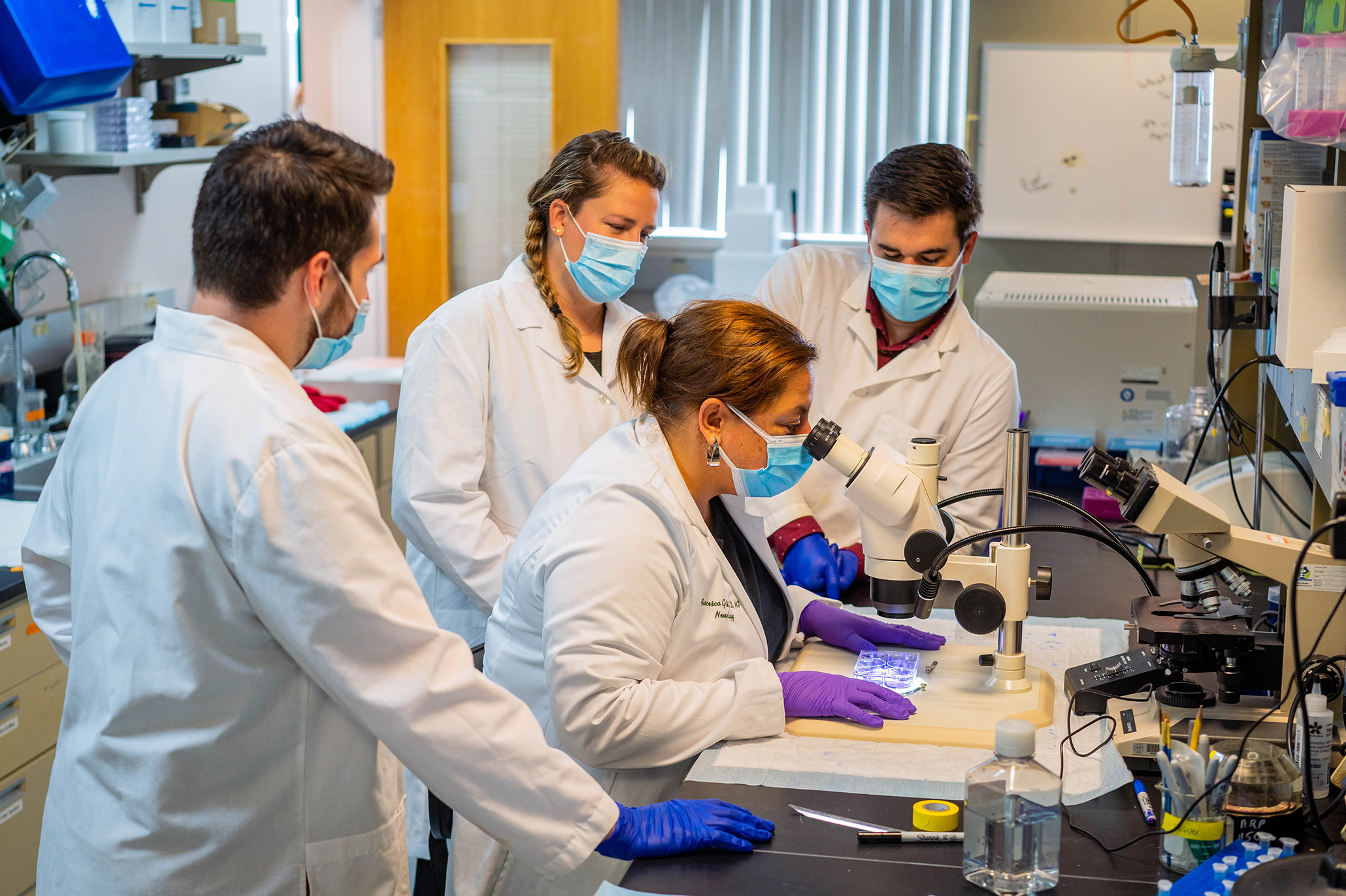
For Release: April 2, 2009
Contact: dms.communications@dartmouth.edu, 603-650-1492
Losing a Newborn Sibling Can Have Life-long Impact

Dr. Joanna Fanos
Hanover, N.H.—Little is known about the long-term effects of losing a sibling in the neonatal intensive care unit (NICU). Survivor siblings may encounter unforeseen emotional difficulties and developmental consequences, whether they are born before or after the infant's death, and the impact can be life-long, according to a Dartmouth Medical School study.
The report, published online by The Journal of Pediatrics, explores the psychological and emotional issues related to siblings of children who died in the NICU. Investigators are Drs. Joanna Fanos, research assistant professor of pediatrics; George Little, professor of pediatrics and obstetrics and gynecology and Dr. William Edwards, professor of pediatrics.
The researchers surveyed siblings of children who died in the Dartmouth-Hitchcock Medical Center NICU between 1980 and 1990. They interviewed 13 adults and 1 adolescent about their experiences as a child related to the death of their sibling. Participants were asked to share their memories associated with the event, including parental reactions to the death, their thoughts about the NICU itself, and what they experienced at home after the sibling's death.
Many participants felt that counseling would have helped their parents.
—Dr. Joanna Fanos
Surviving siblings had similarities, including a sense of confusion surrounding the memories of the event and high anxiety rates, the researchers found. Those born after the child's death reported a lack of communication within the family about the death itself. Perhaps most striking, however, is that half of the siblings believed that their parents never mourned the loss of the child.
"Many participants felt that counseling would have helped their parents," said Fanos, lead author and a member of Dartmouth's Hood Center for Children and Families. She suggests that "medical providers and family members alike should consider psychological counseling to gain insight into the emotional responses to death in the NICU." Fanos and her colleagues believe that the results of this survey demonstrate the need for further research.
The study also revealed that rituals, photographs and shared memories were important parts of the healing process. One family, for example, celebrates the December birthdays of the two children they lost in the NICU by lighting candles in the snow. Photographs were particularly important as they represented a symbolic link to the infant. As Fanos explains, "The sharing of rituals and photos fosters communication between the parents and siblings and allows a continuing bond with the deceased child."
The report, Candles in the Snow: Ritual and Memory for Siblings of Infants Who Died in the Intensive Care Nursery" is in press.
-DMS-
